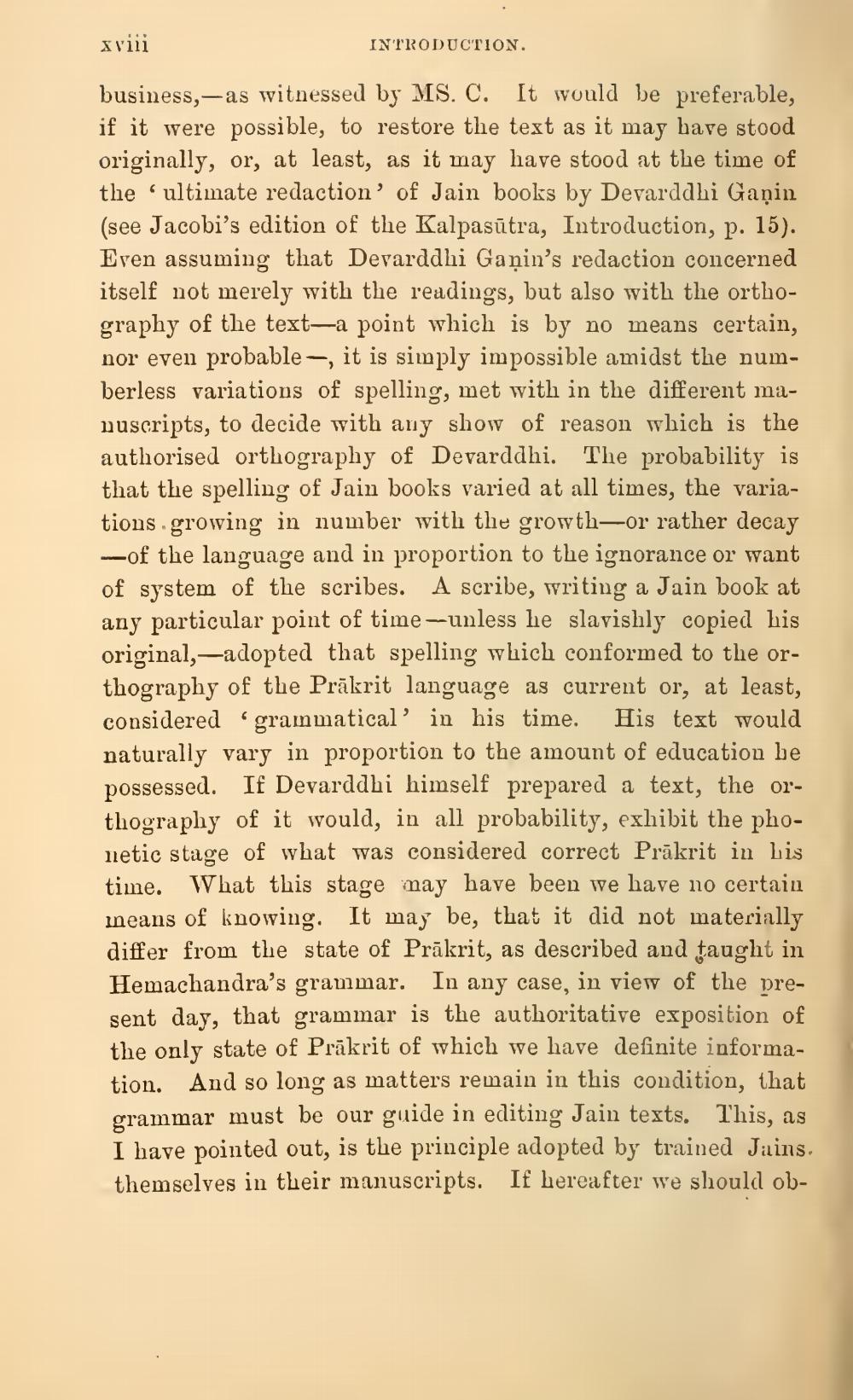________________
svili
INTRODUCTION.
business, -as witnessed by MS. C. It would be preferable, if it were possible, to restore the text as it may have stood originally, or, at least, as it may have stood at the time of the ultimate redaction of Jain books by Devarddhi Gaộin (see Jacobi's edition of the Kalpasūtra, Introduction, p. 15). Even assuming that Devarddhi Gaņin's redaction concerned itself not merely with the readings, but also with the orthography of the text-a point which is by no means certain, nor even probable-, it is simply impossible amidst the numberless variations of spelling, met with in the different manuscripts, to decide with any show of reason which is the authorised orthography of Devarddhi. The probability is that the spelling of Jain books varied at all times, the variatious growing in number with the growth-or rather decay --of the language and in proportion to the ignorance or want of system of the scribes. A scribe, writing a Jain book at any particular point of time-unless he slavishly copied his original,-adopted that spelling which conformed to the orthography of the Prākrit language as current or, at least, considered grammatical' in his time. His text would naturally vary in proportion to the amount of education be possessed. If Devarddhi himself prepared a text, the orthography of it would, in all probability, exhibit the phonetic stage of what was considered correct Prākrit in his time. What this stage may have been we have no certain means of knowing. It may be, that it did not materially differ from the state of Prākrit, as described and taught in Hemachandra's grammar. In any case, in view of the present day, that grammar is the authoritative exposition of the only state of Prākrit of which we have definite information. And so long as matters remain in this condition, that grammar must be our guide in editing Jain texts. This, as I have pointed out, is the principle adopted by trained Jains. themselves in their manuscripts. If hereafter we should ob




